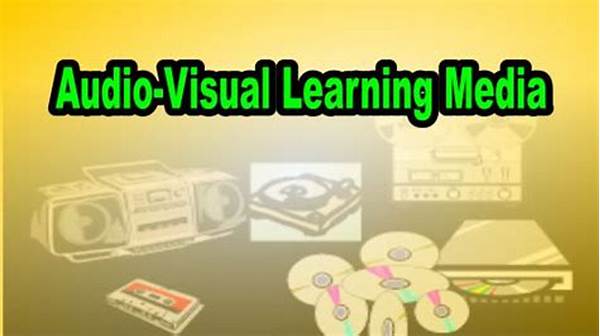Picture this: a world where the intricacies of the human mind are unraveled not through mere text, but through vibrant images and sounds. In the realm of psychology and behavioral studies, this isn’t just a distant dream. It’s the reality today, as audio visual learning media are revolutionizing how we comprehend behavior, cognition, and emotions. Gone are the days of monotonous lectures and static reading materials. Instead, imagine being transported into an engaging space where theories come alive and learning is as dynamic as it is informative.
Read More : Free Audio Visual Editing Software For Beginners
At the forefront of this transformation are innovative tools that captivate, educate, and inspire both students and seasoned researchers alike. Welcome to a world where psychology’s abstract theories are made tangible, its complexities simplified, thanks to audio visual learning media. This isn’t just a shift in pedagogy; it’s a seismic shake-up that blends creativity with cognition. As you journey through this article, expect a blend of storytelling, research, interviews, and real-life applications designed to spark curiosity and drive action. So buckle up and get ready to dive into the exciting intersection of technology and psychology!
Embracing Change: The Impact of Audio Visual Tools
The influence of audio visual learning media reshaping psychology and behavioral studies is nothing short of transformative. Traditionally, students of psychology have relied on hefty textbooks and exhaustive note-taking. While these methods have stood the test of time, modern learners crave diverse and interactive experiences that sustain their attention and amplify their interest.
Enhancing Cognitive Engagement
One of the primary benefits of audio visual media in this context is its ability to boost cognitive engagement. By incorporating visuals, animations, and simulations, complex theories and concepts become digestible, fostering a deeper understanding. Students are no longer passive consumers of information; they become active participants in their learning journeys, analogous to characters navigating a meticulously crafted narrative.
A Real-world Example: The Case Study of Phineas Gage
Consider the case study everyone knows about Phineas Gage—a railway worker whose personality was radically altered after a tamping iron went through his skull. Instead of just reading about it, imagine watching a vivid reconstruction that illustrates the event and its psychological aftermath. This method not only enhances educational retention but also encourages empathy and emotional connectivity.
Audio Visual Tools: New Horizons in Research
In the field of psychology and behavioral studies, research isn’t just enriched—it’s elevated through the use of audio visual learning media. These tools facilitate a multi-sensory approach to data collection and analysis, which is crucial for deciphering human behavior.
Pioneering Studies in Human Behavior
Research studies now incorporate audio visual elements to examine stimuli more accurately. For example, immersive virtual reality environments allow researchers to observe and analyze participant reactions in controlled yet realistic settings. These innovations offer unprecedented opportunities for gaining insights into components of human behavior, such as social interactions, decision-making processes, and emotional responses, in ways that traditional methods could never achieve.
Breaking Barriers with Technology
Furthermore, audio visual learning media break geographical and financial barriers that previously limited the scope of psychological research. Students and professionals from around the globe can collaborate in virtual spaces, sharing data and insights without the constraints of distance or budgetary restrictions.
Educational Excellence Through Storytelling
Storytelling in education isn’t novel, but when combined with visuals and sound, it’s a potent vehicle for conveying psychological concepts. Instructors are now able to craft narratives that resonate on a personal level, enhancing both educational and emotional impact.
Compelling Narratives for Deeper Learning
For example, a lesson on cognitive dissonance might involve an animated mini-drama depicting everyday scenarios where conflicting beliefs and actions collide, making the theory not just memorable, but applicable. This narrative depth is the defining quality that sets apart audio visual learning.
Read More : Techniques Correct Slow-motion Video Recording
The Future of Psychology Education
As we look to the future, audio visual learning media will continue to reshape psychology and behavioral studies in numerous compelling ways. The integration of cutting-edge technology with traditional educational methods will not only redefine how subjects are taught and learned but will also challenge and expand the very boundaries of the discipline itself.
The Allure of Innovation
Institutions and educators who adopt these advanced methodologies are likely to see heightened student interest and retention rates. The appeal of a curriculum that doesn’t just educate but also entertains cannot be overstated. With tech-savvy generations at the helm, the future holds infinite promise for those willing to embrace this digital evolution.
Unlocking Potential and Expanding Horizons
In summary, the application of audio visual learning media in psychology and behavioral studies is a testament to the field’s adaptability and forward-thinking ethos. By embracing these tools, we are not only enhancing the quality of education but also paving the way for groundbreaking research and a deeper understanding of the human psyche.
Detailed Benefits and Purposes of Audio Visual Learning Media
Audio visual learning media are rewriting the rulebook in psychology and behavioral studies, offering dynamic and diverse advantages:
Breaking it Down: Key Takeaways
In the expansive landscape of psychology and behavioral studies, embracing audio visual tools is no longer optional—it’s essential. Here’s why:
Conclusion
The transformational power of audio visual learning media reshaping psychology and behavioral studies cannot be overstated. As this article has explored, these tools are breathing new life into age-old academic disciplines. Whether you’re an educator looking to captivate and inspire, a student eager for deeper insights, or a researcher on the brink of a groundbreaking discovery, the time to embrace these advancements is now.
Together, as academia and technology continue to converge, we’re not just observing a trend; we’re witnessing a revolution—one where knowledge is accessible, engaging, and endless in its possibilities. So take that step towards innovation. Expand your horizons and explore the full potential of learning in the audio visual era.
